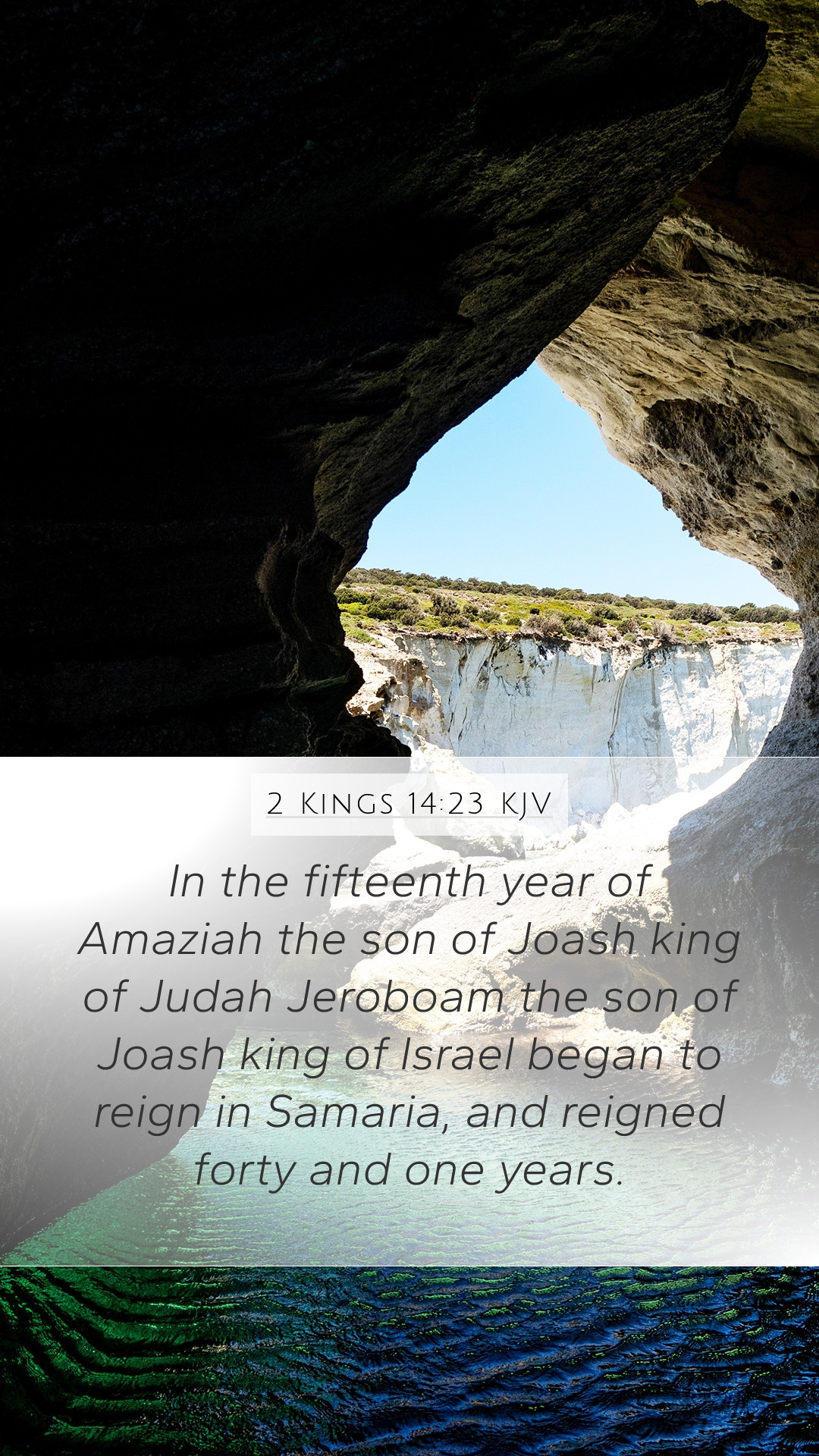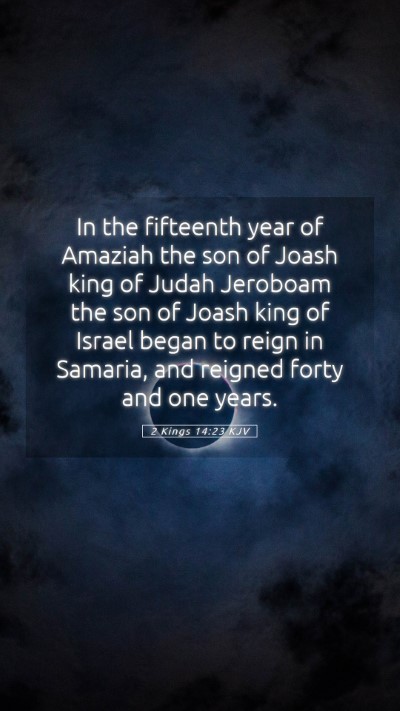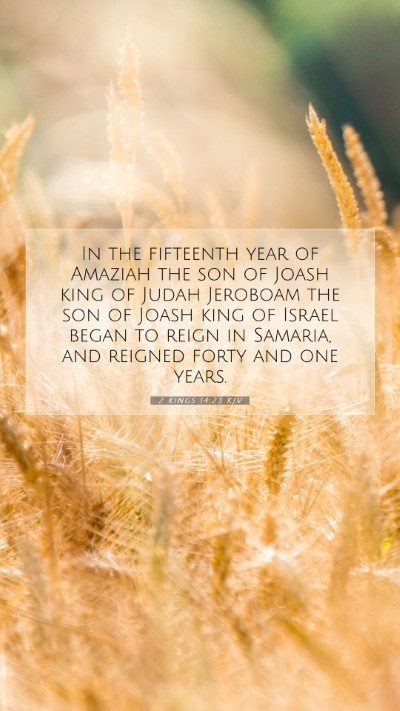Understanding 2 Kings 14:23 - Bible Verse Commentary
2 Kings 14:23 states, "In the fifteenth year of Amaziah the son of Joash king of Judah, Jeroboam the son of Joash king of Israel began to reign in Samaria, and reigned forty and one years." This verse marks an important point in the historical narrative of the Israelite kingdoms and the progression of biblical history.
General Overview
This passage provides a timeline within the historical context of the divided monarchy in Israel and Judah. It highlights the reign of Jeroboam II, a king who played a significant role in the northern kingdom of Israel.
- Historical Context: The verse reflects the political landscape of Israel, where Jeroboam II’s reign is marked by both prosperity and idolatry.
- Comparison with Judah: It also contrasts the leadership in Judah under Amaziah and the contrasting moral decline present in Israel.
- Prophetic Significance: This context sets the stage for the prophetic voices that called for repentance from both nations.
Bible Verse Meanings
Understanding this verse involves delving into its implications for the Israelites at that time and its relevance today.
Insights from Public Domain Commentaries
Matthew Henry: Henry emphasizes Jeroboam II’s significant political achievements and prosperity. He notes that while there was external success, it came alongside spiritual failures, portraying the complexity of leadership during this era.
Albert Barnes: Barnes explains that Jeroboam's reign was one of remarkable extension and conquest that returned much of Israel's former territory, suggesting a resurgence in national pride and stability, albeit founded on a foundation of idolatry.
Adam Clarke: Clarke provides an analysis of the duality of Amaziah’s and Jeroboam’s reigns, elucidating the stark contrasts between their personal and political decisions that led to distinct outcomes for their respective kingdoms.
Application of the Verse
The life of Jeroboam II serves as a lesson on the power dynamics within leadership, reflecting the dubious distinction between worldly success and spiritual fidelity. His 41 years of reign underline themes of prosperity intertwined with moral demise.
Key Takeaways for Bible Study
- The importance of aligning leadership with God’s commands.
- Understanding historical and cultural contexts enhances comprehension duing Bible study groups.
- Reflecting on how the choices of leaders can affect an entire nation spiritually.
Bible Study Resources
To further understand this passage and its context, consider using various Bible study tools and guides:
- Online Bible study platforms that provide interactive commentary.
- Bible study lessons focused on Old Testament history.
- Study materials outlining the prophetic messages during Jeroboam II's reign.
Cross References
- 2 Kings 14:16: Discusses the fate of Jeroboam II.
- Amos 7:9-11: The prophecy against Israel concerning its sins.
- Hosea 1:1: Prophetic insights during this period.
Conclusion
In conclusion, 2 Kings 14:23 invites believers to reflect upon the implications of leadership and the covenant faithfulness required of God’s people. It serves as a poignant reminder that prosperity must not overshadow the need for spiritual integrity.


